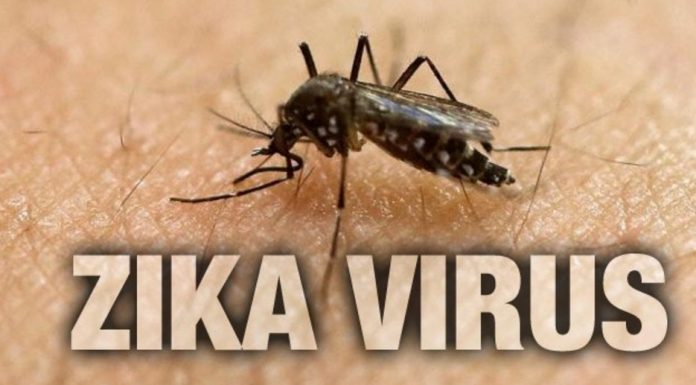
WATCH: (Scroll Down For Video) U.S. officials are investigating ways to protect American athletes and members of the U.S. Summer Olympics delegation from Zika as they begin to go to Brazil, the epicenter of the rapidly evolving outbreak.
The Centers for Disease Control and Prevention is also assessing the threat that athletes and other travelers to the Games may increase the global spread of the mosquito-borne virus when they return to their home countries.
Although U.S. officials have repeatedly stressed that Team USA’s athletes face a low risk of infection, the measures highlight how seriously officials are taking the Zika threat, especially its potentially devastating diagnosis for the fetuses of pregnant women.
On Monday, 11 senators sent a letter to the U.S. Olympic Committee asking for information on how it plans to protect athletes during the Games and after they return. In response, the USOC said the special infectious disease advisory group it created in March is providing real-time information about Zika as well as other infectious diseases. Athletes have been informed about mosquito-bite prevention, will be living in air-conditioned housing, and will be given long-sleeved shirts and pants, the USOC said. They will also be given condoms for up to six months following their trip to Brazil, the letter said.
In recent weeks, the CDC and and USOC have been in round-the-clock discussions about ways to test athletes and members of the delegation for Zika during the Olympics, which begin Aug. 5, and the Paralympics, which start Sept. 7. The U.S. delegation is expected to number about 2,630, including about 815 athletes. Of the 550 Olympic athletes, more than half will be women.
“We want to make sure if there are members of the U.S. delegation who get symptoms of Zika, that they are accurately and promptly tested,” said CDC Director Tom Frieden in an interview.
Still, he stressed that because the Games will take place during Brazil’s winter, when there are fewer active mosquitoes, “for the Olympians, the risks are really very, very low.”
CDC and health officials across the globe have advised women who are pregnant to avoid traveling to regions where Zika is prevalent, and they have advised women who are trying to become pregnant, and their male partners, to use condoms or abstain from sex during their stay and after returning home.
Zika infections during pregnancy can cause serious fetal brain abnormalities, including microcephaly, which is characterized by abnormally small heads and severe developmental problems. Zika is primarily transmitted through mosquitoes but can also spread through sexual contact.
Exactly how testing of U.S. athletes and staff will take place is still being worked out. One study underway at the University of Utah is monitoring potential Zika infections in about 100 participants. The volunteers include Olympic athletes, coaches and USOC staff. Researchers have been testing their blood, urine and saliva on a regular basis since early March as they travel to and from Brazil for preparatory visits.
Sixteen have completed travel. No one has tested positive so far, said Carrie Byington, a pediatric infectious disease specialist at the university who is leading the study. Byington also chairs the USOC’s Infectious Disease Advisory Group. She hopes to expand the pilot study to 1,000 individuals, including athletes, coaches and staff who will be attending the Olympics and the Paralympics.

